A spiritual experience at Delhi’s Sufi shrine
I had read a lot about the Sufi devotional singing that takes place every Thursday night at the Hazrat Nizamuddin Dargah Mosque in south Delhi. For a long time, I’d been intrigued to witness the uplifting music that takes people into a hypnotic state as it reaches its crescendo, but had never had the opportunity to go before. I’d either been too busy with work-related commitments or simply hadn’t been in town that day of the week. However, on this occasion, I was excited that not only did our stay in Delhi fall on the right day of the week, we’d also chosen to stay in a guest house in south Delhi close to the mosque itself.
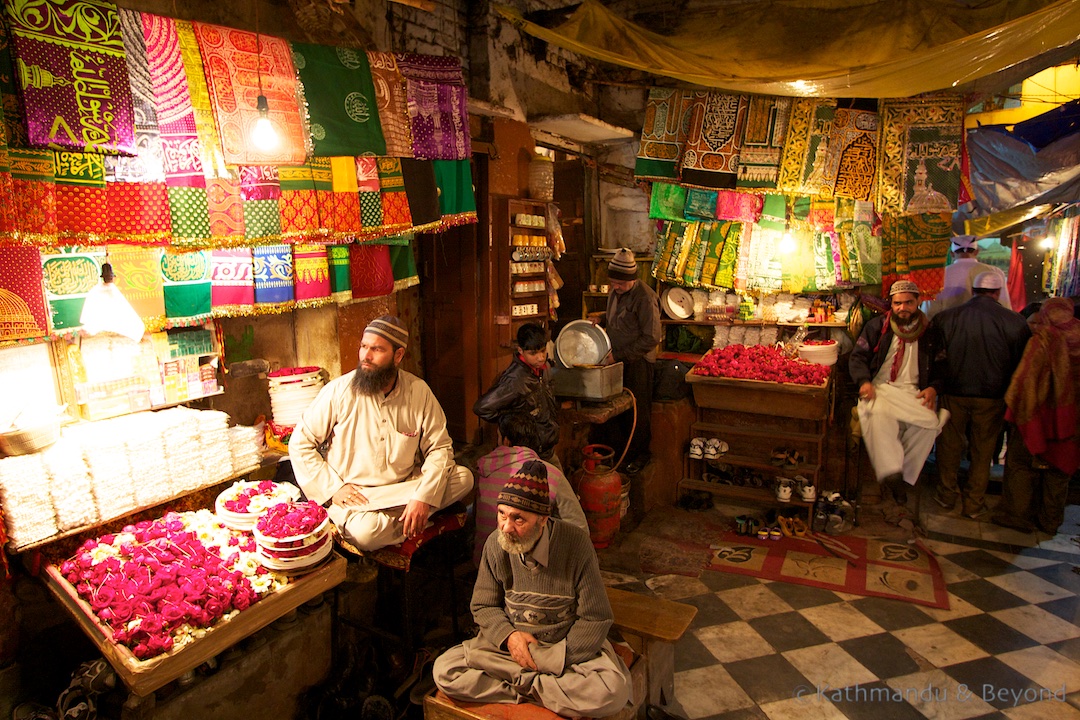 On the approach to Hazrat Nizam-ud-din Dargah
On the approach to Hazrat Nizam-ud-din Dargah
In fact, it’s not a mosque: it houses the mausoleum of one of the world’s most famous Sufi saints, Nizamuddin Auliya, and is, therefore, a shrine: a highly venerated one which thousands of Muslims visit each week.
Sufis are ascetic Muslims who attempt to gain intense experiences by means of fasting and dancing to achieve ecstasy. In a way, they are like Hindu sadhus looking for moksha, or mendicants in Christianity. Sufis exploit the mysticism of Islam to achieve similar results. Although music is generally avoided by Muslims, Sufis use repetitive hypnotic chants accompanied by tambourines and pipes and engage in whirling dances to achieve a trance-like state. – Ben Bennetts, The Religion Business
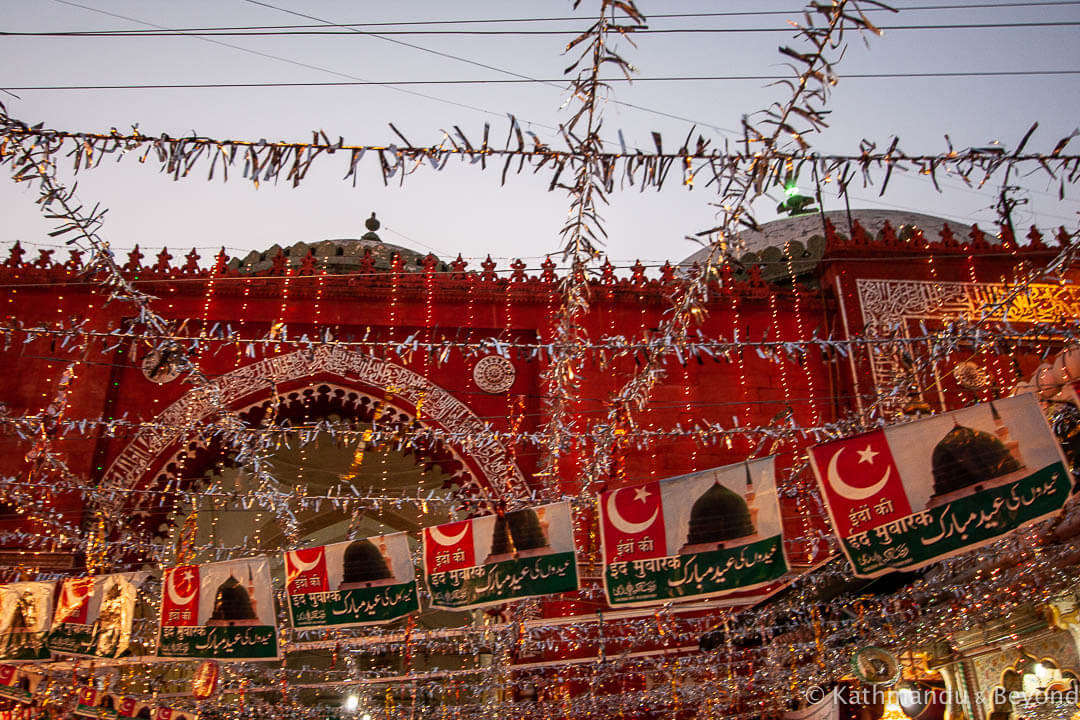 Hazrat Nizam-ud-din Dargah
Hazrat Nizam-ud-din Dargah
The style of trance-inducing music and singing is called Qawwali and our research told us that the performance usually got going around 7pm and so we headed off from our guesthouse in good time. The entrance to the temple complex is off the main road and as we approached it the road turned into small lanes and then a labyrinth of twisting alleyways and covered bazaars. Small stalls lined the route with shopkeepers either perched on a low stool next to their shop or, more commonly, sat on the platform among their wares. They were selling the Koran and other religious literature, flower garlands, prayer caps and head scarves and the air was thick with the scent of rose-water and incense.
We arrived at the open marble courtyard and wandered around for some time, soaking up the atmosphere, whilst the crowds gathered. Lines of silver tinsel crisscrossed above and as the sun set and the lights that adorned the domes and minarets started twinkling, I had to check myself that I wasn’t at a Christmas party!
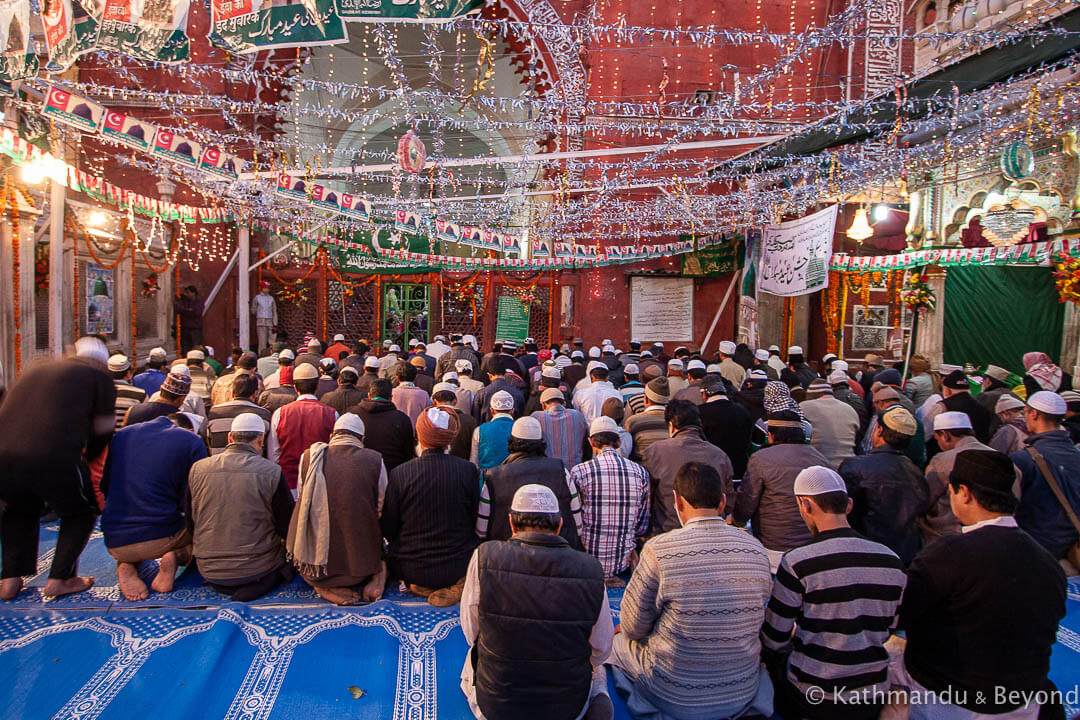 Hazrat Nizam-ud-din Dargah
Hazrat Nizam-ud-din Dargah
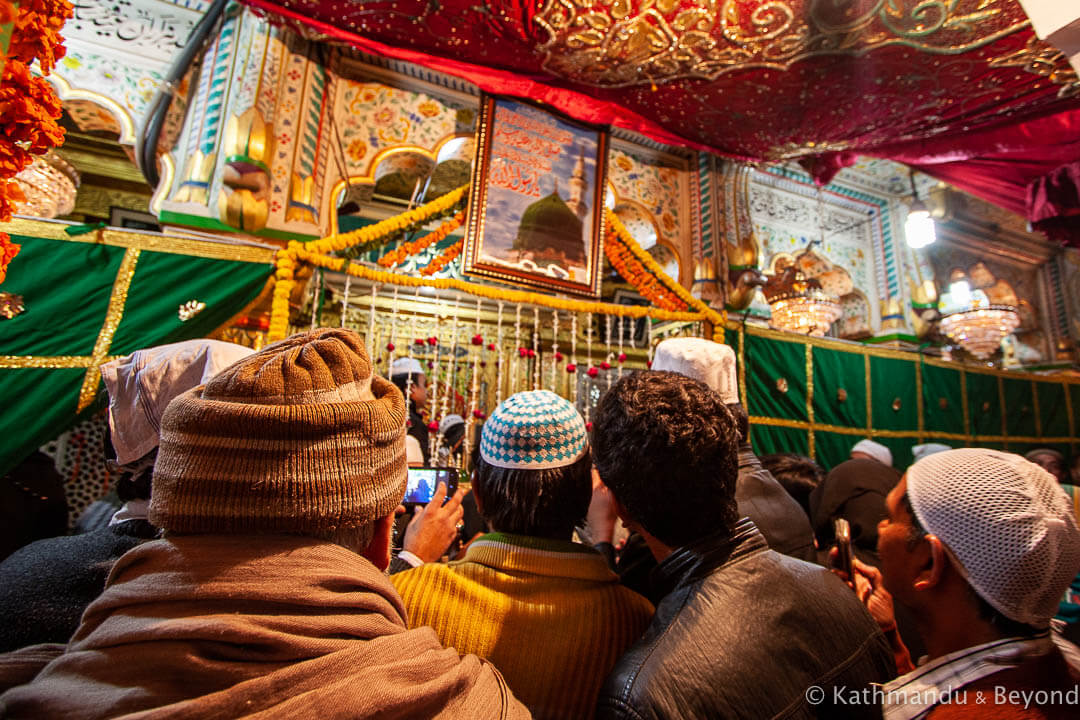 Hazrat Nizam-ud-din Dargah
Hazrat Nizam-ud-din Dargah
Seven o’clock was approaching and we couldn’t figure out exactly where we should be sitting – we’d expected it would be obvious. So, we wandered about some more. People were very friendly and started offering us snacks of Indian sweets and dried fruit. One family approached us and we struck up a general conversation. And then we asked when the singing would begin. “Oh,” they replied. “It won’t be happening today. Today is a very special day.” “Oh?” – it was my turn.
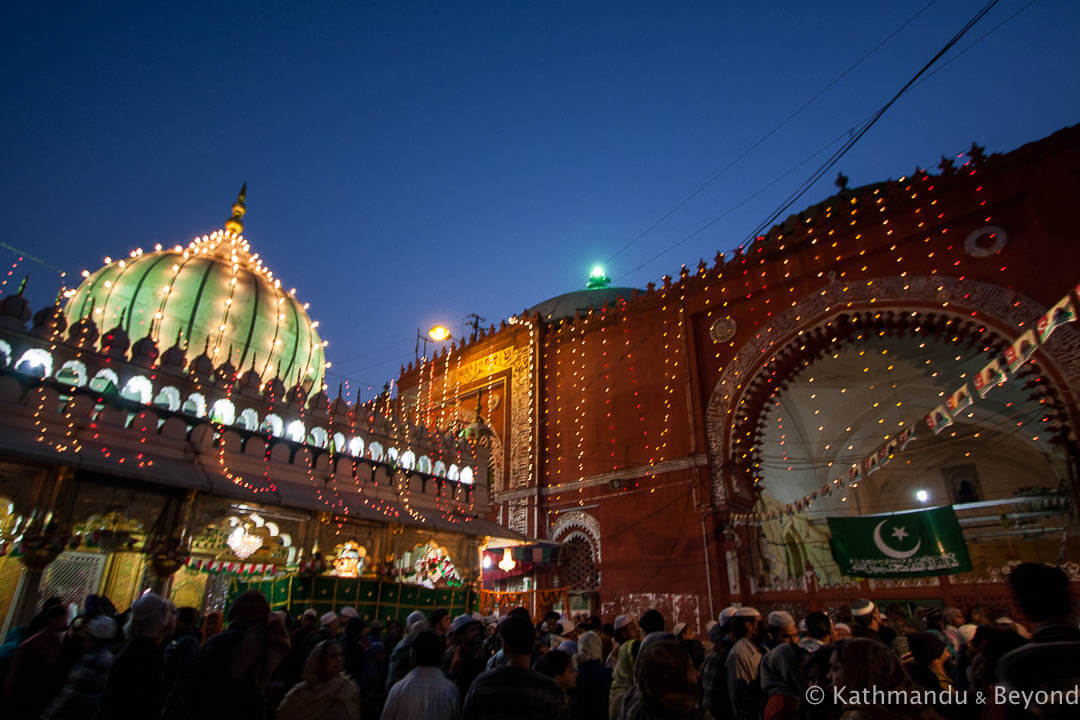 Hazrat Nizam-ud-din Dargah
Hazrat Nizam-ud-din Dargah
It turned out it was Muhammad’s birthday. To be more precise the anniversary of his birth – he was born “around” 570 AD and I suppose it’s not surprising no-one knows the actual date! The day is based on the Muslim lunar calendar and varies from year to year but this year it fell on a Thursday – the very Thursday we happened to be visiting one of the most significant Islamic monuments in India. At first, I was a little disappointed. I was anticipating finally seeing something that had long been on my “bucket list” but then I reasoned, isn’t this the beauty of travelling: expect the unexpected. We were taken under the wing of one family who gave us an informal tour and explained what was happening, fed us snacks and asked us about our lives. The atmosphere was a unique combination of family unity and spiritual devotion and I soon forgot the reason we came as we got wrapped up in an experience that was different from what we had expected but was nonetheless a fantastic one.
If you’re in Delhi on a Thursday night you must visit Nizamuddin Dargah shrine to listen to the famous Sufi singing – and let us know what it was like!

Trackbacks/Pingbacks